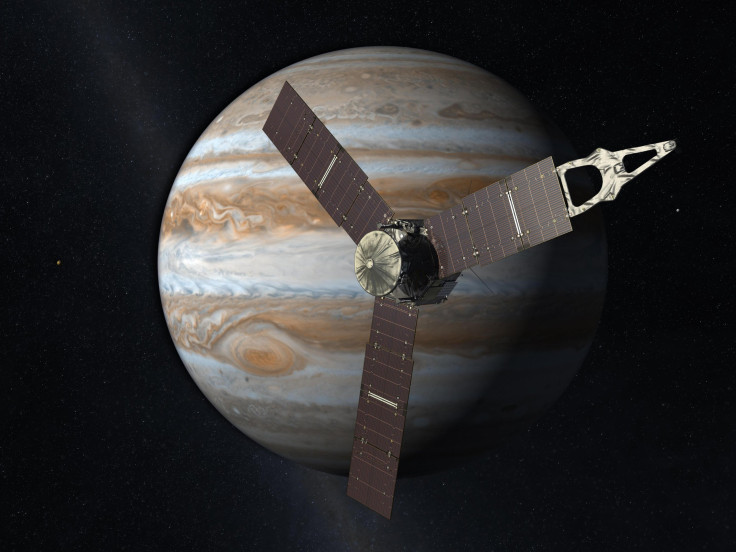Jupiter-Bound Juno: NASA Probe Will Rocket Over Earth Wednesday On Way To Jupiter

NASA's Juno spacecraft is preparing to fly past Earth on Wednesday on its journey to Jupiter.
The spacecraft, which will orbit Jupiter 33 times over one year, will pass Earth's surface at approximately 3:21 p.m. EDT Wednesday, according to a University of Iowa press release. Juno will come within 350 miles of the surface before hurtling back into space toward Jupiter.
"Juno will be really smoking as it passes Earth at a speed of about 25 miles per second relative to the sun," said Bill Kurth, University of Iowa research scientist and lead investigator for Juno's wave instrument. "But it will need every bit of this speed to get to Jupiter for its July 4, 2016, capture into polar orbit about Jupiter. The first half of its journey has been simply to set up this gravity assist with Earth."
Juno features a Waves instrument built by a group of nearly a dozen scientists, engineers and technicians at the University of Iowa. The group also helps operate the instrument that will be used to measure radio and plasma waves within Jupiter's polar magnetosphere. Juno will be the first craft ever to orbit over Jupiter's poles -- home to the most powerful auroras in the solar system -- hitting the top of the planet's clouds before moving close to 1.75 million miles from Jupiter every 11 days.
"Jupiter has the largest and most energetic magnetosphere, and to finally get an opportunity to study the nature of its auroras and the role radio and plasma waves play in their generation makes Juno a really exciting mission for me," Kurth said.
Mapping the gravity and magnetic fields of Jupiter is also on the list of tasks. And once Juno has completed its mission, it will self-destruct by flying directly into Jupiter's atmosphere. But the extremely dramatic ending is strategic since scientists want to make sure the craft does not collide with Jupiter's moon Europa and contaminate it with microbes from Earth -- greatly threatening future missions that scientists have planned in order to study the origins of life on Europa.
© Copyright IBTimes 2025. All rights reserved.
Join the Discussion





















